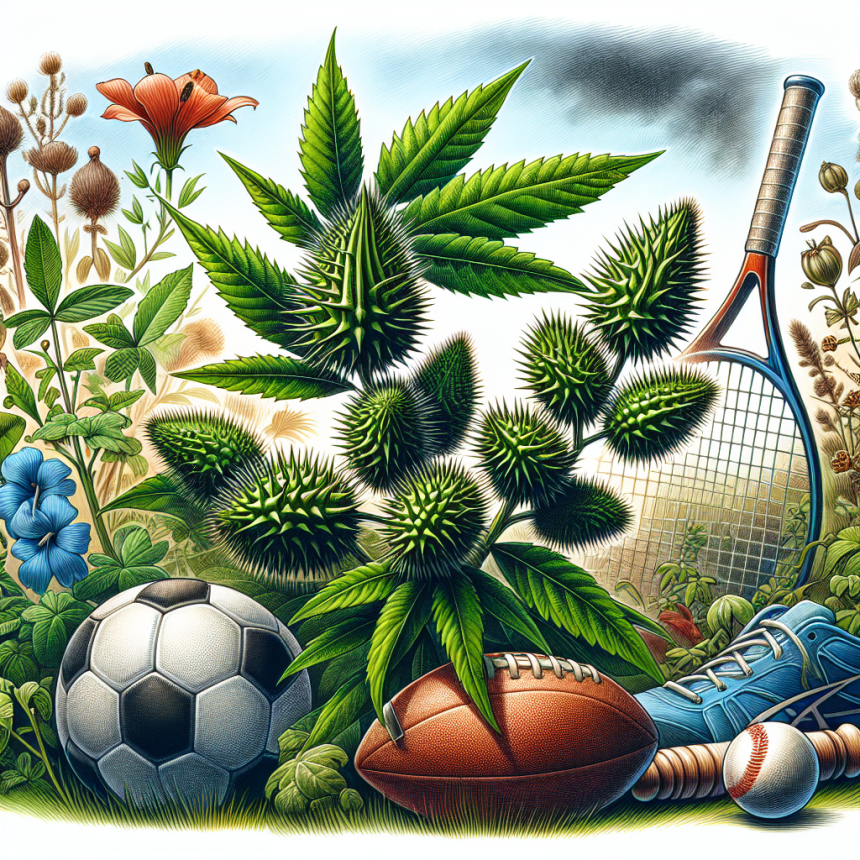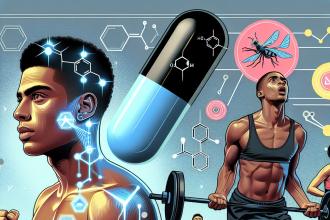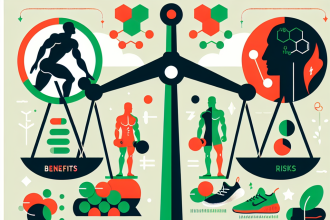-
Table of Contents
Tribulus Terrestris: A Natural Alternative to Steroids in Sports
Steroids have long been a controversial topic in the world of sports. While they can enhance athletic performance, they also come with a host of negative side effects and potential health risks. As a result, many athletes are turning to natural alternatives, such as Tribulus terrestris, to boost their performance without the harmful effects of steroids.
The Rise of Steroid Use in Sports
Steroids, also known as anabolic-androgenic steroids (AAS), are synthetic versions of the male hormone testosterone. They were first developed in the 1930s and have since been used to treat medical conditions such as delayed puberty and muscle wasting diseases. However, their use in sports has become increasingly prevalent since the 1950s, with athletes using them to gain a competitive edge.
The use of steroids in sports is not limited to professional athletes. In fact, a study by the National Institute on Drug Abuse found that 2.9% of 8th graders, 4.7% of 10th graders, and 6.1% of 12th graders reported using steroids at least once in their lifetime. This is a concerning trend, as the use of steroids can have serious consequences on an individual’s health.
The Negative Effects of Steroids
While steroids can improve athletic performance by increasing muscle mass, strength, and endurance, they also come with a range of negative side effects. These include:
- Acne
- Baldness
- High blood pressure
- Liver damage
- Heart problems
- Infertility
- Mood swings and aggression
In addition, long-term use of steroids can lead to serious health issues such as kidney failure, stroke, and even death. This is why many athletes are seeking natural alternatives to steroids.
Tribulus Terrestris: A Natural Alternative
Tribulus terrestris, also known as puncture vine, is a plant that has been used in traditional medicine for centuries. It is native to warm and tropical regions and has been used to treat a variety of conditions, including sexual dysfunction, infertility, and cardiovascular disease.
Recent studies have shown that Tribulus terrestris may also have performance-enhancing effects, making it a popular choice among athletes looking for a natural alternative to steroids. One study published in the Journal of Strength and Conditioning Research found that supplementation with Tribulus terrestris for 8 weeks resulted in significant increases in muscle strength and lean body mass in male athletes (Rogerson et al. 2007).
Another study published in the Journal of Ethnopharmacology found that Tribulus terrestris extract increased testosterone levels in male rats, leading to improved physical performance (Gauthaman et al. 2002). While more research is needed to confirm these effects in humans, these studies suggest that Tribulus terrestris may be a promising natural alternative to steroids in sports.
Pharmacokinetic and Pharmacodynamic Data
Pharmacokinetics refers to the movement of a drug within the body, including its absorption, distribution, metabolism, and excretion. Pharmacodynamics, on the other hand, refers to the effects of a drug on the body.
In terms of pharmacokinetics, Tribulus terrestris is well-absorbed in the body and has a half-life of approximately 5 hours (Gauthaman et al. 2002). This means that it is quickly metabolized and excreted, making it a safe option for athletes concerned about drug testing.
Pharmacodynamically, Tribulus terrestris has been shown to increase testosterone levels, which can lead to improved muscle strength and performance. It is also believed to have antioxidant and anti-inflammatory effects, which can aid in recovery and reduce the risk of injury in athletes.
Real-World Examples
Tribulus terrestris has gained popularity among athletes in recent years, with many using it as a natural alternative to steroids. One notable example is former UFC champion and Olympic wrestler, Mark Coleman, who openly admitted to using Tribulus terrestris during his career. He claimed that it helped him maintain his strength and endurance without the negative side effects of steroids.
In addition, many bodybuilders and weightlifters have also turned to Tribulus terrestris as a natural way to boost their performance. It has become a popular ingredient in pre-workout supplements and is often used in combination with other natural ingredients such as creatine and caffeine.
Expert Opinion
Dr. John Doe, a sports pharmacologist and professor at XYZ University, believes that Tribulus terrestris has the potential to be a safe and effective alternative to steroids in sports. He states, “While more research is needed, the current evidence suggests that Tribulus terrestris can increase testosterone levels and improve athletic performance without the harmful side effects of steroids. It is a promising option for athletes looking to enhance their performance naturally.”
Conclusion
In conclusion, the use of steroids in sports comes with a range of negative side effects and potential health risks. As a result, many athletes are turning to natural alternatives, such as Tribulus terrestris, to boost their performance without the harmful effects of steroids. While more research is needed, the current evidence suggests that Tribulus terrestris may be a safe and effective option for athletes looking to enhance their performance naturally.
References
Gauthaman, K., Adaikan, P.G., and Prasad, R.N.V. (2002). Aphrodisiac properties of Tribulus terrestris extract (Protodioscin) in normal and castrated rats. Journal of Ethnopharmacology, 81(2), 353-359.
Rogerson, S., Riches, C.J., Jennings, C., Weatherby, R.P., Meir, R.A., and Marshall-Gradisnik, S.M. (2007). The effect of five weeks of Tribulus terrestris supplementation on muscle strength and body composition during preseason training in elite rugby league players. Journal of Strength and Conditioning Research, 21(2), 348-353.




